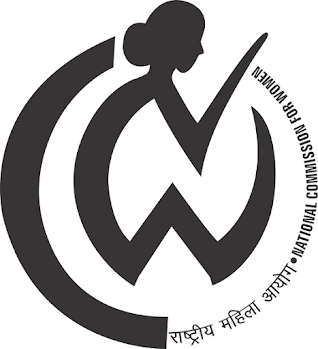National Commission for Women is a statutory body. This Commission was established by the Indian Parliament on 31 January 1992 under the "National Commission for Women Act 1990" of the Indian Parliament. Its headquarters is in New Delhi.
The Women's Commission implements constitutional and legal protection measures for women on the basis of complaint or suo motu cognizance.
The first head of the Commission was Ms. Jayanti Patnaik. After the completion of Mamata Sharma's tenure on 17 September 2014, Lalitha Kumaramangalam was made the head of the commission.

structure-
The National Commission for Women has a Chairman who is a retired judge of the Supreme Court, apart from this there is a Secretary who has a tenure of 3 years and 5 members.
After leaving the post in September last year, Rekha Sharma was holding the post of acting chairperson and now Rekha Sharma has been made the chairperson of the National Commission for Women.
Statutory status-
The National Commission for Women Act 1990 is described in 5 chapters:
Chapter 1 - Abbreviation, extent and commencement
Chapter 2 – Constitution of the National Commission for Women
Chapter 3 – Functions of the Commission
Chapter 4 – Finance Accounting and Audit
Chapter 5 - Miscellaneous
The National Commission for Women also takes suo motu action under Section 10 of the National Commission for Women Act 1990 in relation to heinous crimes.
Complaints can be lodged on the Commission's website www.ncw.nic.in. On this, complaint registration is done within 24 hours.
The Parliamentary Committee of the Government of India designated the National Commission for Women as the coordinating agency at the national level to look into matters related to marriages of migrant women.
On 24 September 2009, the Overseas Indian Cell under the National Commission for Women was formally inaugurated.
The Pravasi Bharatiya Cell looks into the cases received from India and abroad regarding denial of rights to women in marriages held abroad or gross injustice towards them.
Functions and powers of the Commission-
The functions of the Commission are to investigate and examine the safeguards provided for women under the Constitution and other laws. Also to make recommendations to the government on measures for their effective implementation and to review the existing provisions of the Constitution and other laws affecting women.
Apart from this, it is to recommend amendments and take remedial measures if any deficiency in such laws was inadequate or to remove the deficiency.
This includes considering complaints as well as attending to matters relating to deprivation of women's rights and raising issues with appropriate authorities.
To identify barriers to make recommendations for specific problems or situations arising out of discrimination and oppression of women.
Its main functions are to participate and advise in the planning process for the social and economic development of women and to evaluate the progress made in it.


You must be logged in to post a comment.